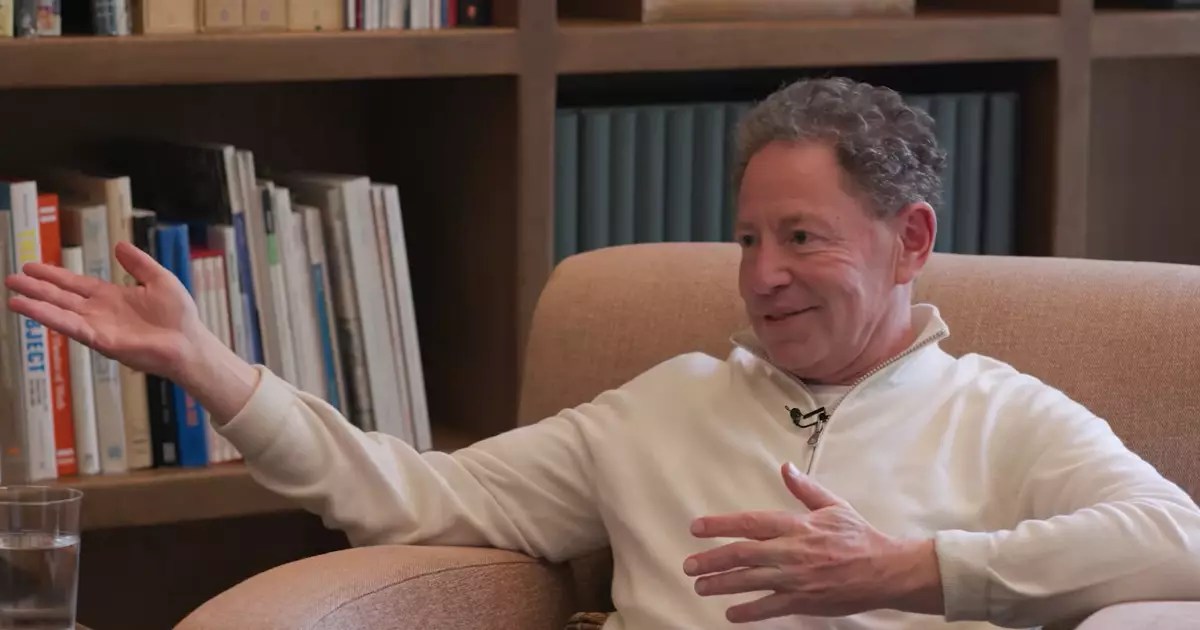In a recent appearance on the Grit podcast, former Activision Blizzard CEO Bobby Kotick made statements that have ignited controversy, particularly concerning allegations of workplace misconduct at the company in 2021. Specifically, Kotick labeled the legal actions against Activision Blizzard as “fake lawsuits,” which led to an uproar from various stakeholders, including labor representatives and former employees. The ensuing discourse unveils critical issues concerning corporate accountability, the culture of silence in the gaming industry, and the broader implications for worker rights.
To delve deeper into Kotick’s claims, it is essential to contextualize the legal environment that surrounded Activision Blizzard during his tenure. In 2021, the company faced serious allegations of harassment and discrimination, resulting in a notable $18 million settlement with the Equal Employment Opportunity Commission (EEOC). This settlement followed accusations that thousands of female employees faced a toxic workplace environment, rife with systemic sexism. The financial repercussions of this settlement signal that the organization had to acknowledge its failings, a point highlighted by Kotick’s own apologies for the inappropriate conduct that transpired under his leadership.
Further muddying the waters, in 2023, another significant settlement amounting to $54 million was reached with the California Civil Rights Department regarding discrimination against women and pay equity issues. Although Kotick insists on framing these lawsuits as mere fabrications aimed at undermining his authority, the settlements serve as a striking counterpoint that raises questions about the validity of his assertions.
The Communication Workers of America (CWA), a major union representing thousands of workers, promptly countered Kotick’s characterizations. According to a spokesperson for the CWA, Kotick’s claims are not only “false” but also “insulting” to the employees who suffered harassment and discrimination while employed at Activision Blizzard. The CWA emphasized that their organization’s interest in unionizing stems from genuine concerns about workplace conditions, fundamentally contradicting Kotick’s suggestion that claims were fabricated as a strategy to increase union membership.
The union’s declaration serves as a reminder of the stark power dynamics at play. Kotick, a billionaire executive, perpetuating the narrative of “fake lawsuits” effectively diminishes the voices of those marginalized within his organization. It raises ethical questions: how can leaders appropriately manage grievances from their employees without resorting to dismissal or insensitivity? The CWA’s statement reflects a growing determination among workers to take control of their conditions—a pragmatic approach to ensuring that their concerns are taken seriously.
The backlash against Kotick’s comments has not been limited to union representatives. The ABK Workers Alliance, representing employees from Activision Blizzard King, also responded assertively. Their social media statement aimed at debunking Kotick’s claims highlights the enduring psychological toll that the alleged harassment inflicted upon employees. The assertion that they organized their unions not only to secure fair treatment but also to confront a hostile work culture illustrates a significant shift in how employees perceive their agency within the workplace.
Moving beyond the notion of workers as mere cogs within a corporate machine, the ABK Workers Alliance distinctly articulated that the union is formed by workers, for workers—contradicting the false narrative that unions are external threats invading company culture. This redefinition of agency signifies that organized labor is not simply a counterforce to management but a collective of empowered individuals advocating for their rights.
Kotick’s framing of legal challenges as “fake” reflects larger trends observed in corporate behavior, where the narrative is often controlled by those at the helm. It’s crucial to recognize this as part of a broader phenomenon where management seeks to delegitimize legitimate grievances raised by employees. The CWA’s warning regarding misinformation tactics utilized during union campaigns underscores trends that labor organizations face in their struggle for equity.
As the conversation surrounding worker rights gains traction, the emphasis on transparency and accountability becomes essential. As the gaming industry grapples with its toxic past, stakeholders—ranging from employees to union advocates—must persist in amplifying the voices of those who are often overlooked. The ongoing dialogue fosters an environment where truth prevails over misinformation, and where the rights of workers are unapologetically upheld.
Bobby Kotick’s recent remarks may reflect a desperate attempt to deflect criticism, but they have inadvertently spotlighted the pressing need for systemic change in corporate culture, especially within the gaming industry. As workers unite to share their stories, they highlight the significant evolution of employee rights and advocacy, paving the way for a more equitable future.


Leave a Reply